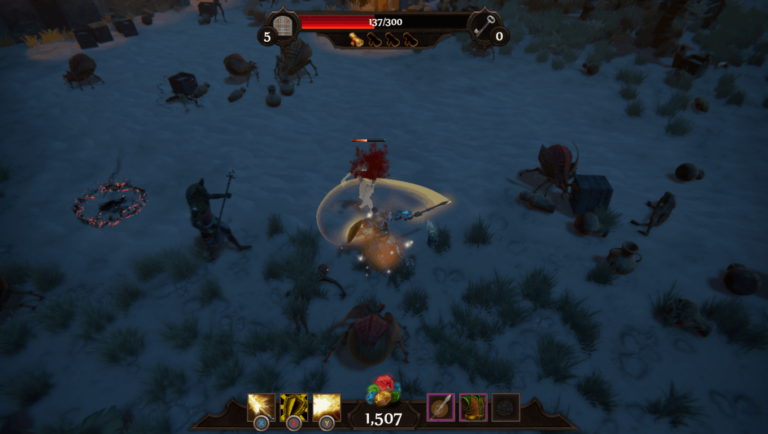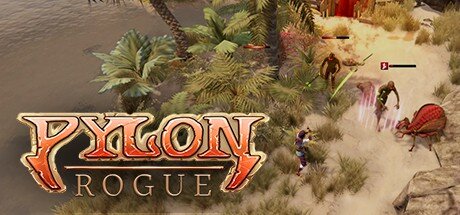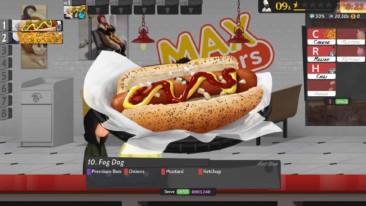Pylon: Rogue from QuantumSquid Interactive
Pylon: Rogue by QuantumSquid Interactive is a Roguelite isometric action game in the vain of Diablo or Torchlight. Its heavy focus on combat makes for a fun but somewhat repetitive experience.
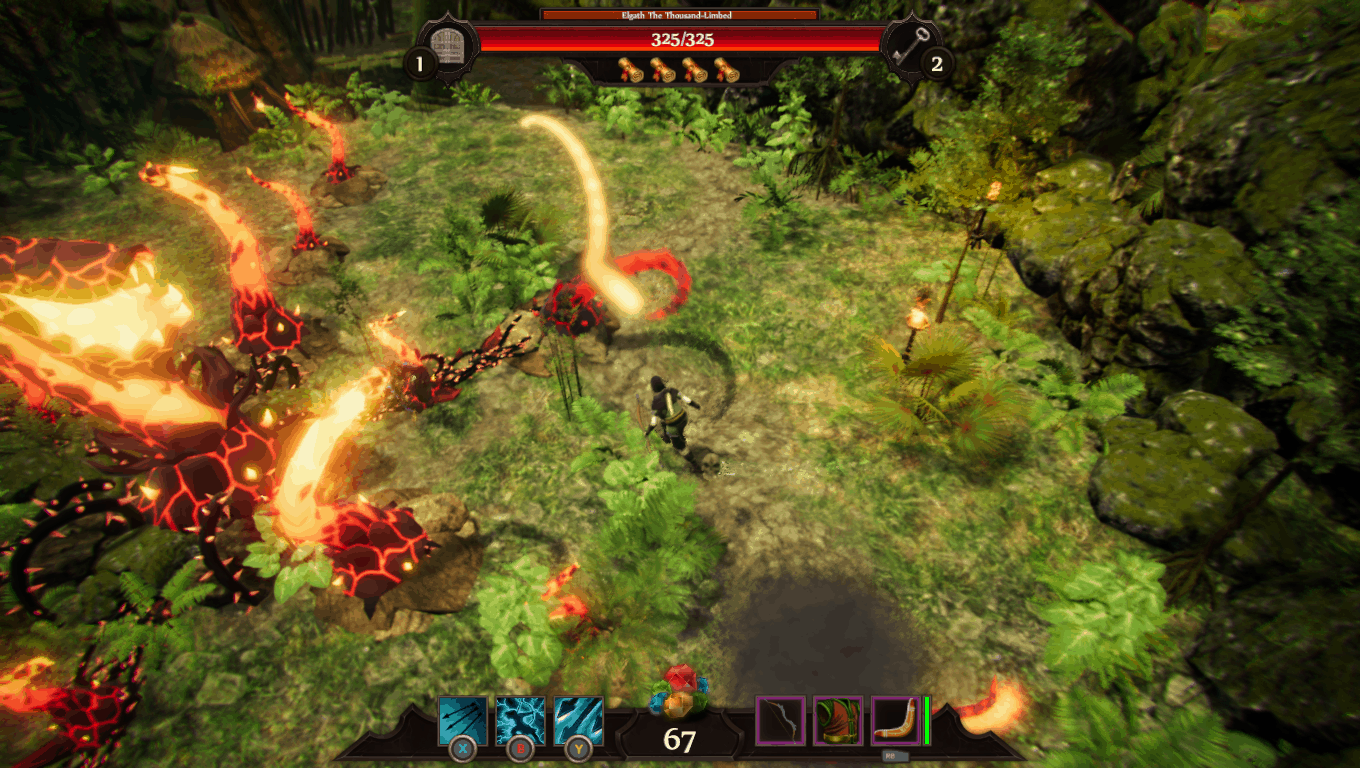
Hack, Slash, Shoot, Repeat
Pylon’s combat offers a great amount of offensive and defensive abilities that are easy to pull off. Pressing the attack button four times is a combo, but when a button is held during that sequence, it creates a different combo. These different combos alongside offensive and defensive abilities keep things simple but still retain some level of complexity. Depending on the character you play, you’ll have a dodge roll or the ability to block attacks for a short amount of time. These defensive abilities keep you from feeling helpless or relying on armor and stats to mitigate damage.
The mastery of the combat and skills at your disposal is crucial if you want to get very far; enemies are relentless and formidable. Fortunately, it’s all well-polished and smooth, making for a satisfying combat system. The strongest aspect in the game, in fact, is its combat; it was a lot of fun and kept me starting new play-throughs to see how far I could get.
As mentioned earlier, the game features different characters: paladin, ranger, stone golem, and assassin. Each have their own move-sets. The ranger, for example, is good at picking off enemies from a distance, as one would expect, while the rock golem is more resilient and has more health points from the onset. Experimentation is recommended so that you find the character whose strengths and weaknesses best fit your style of play.
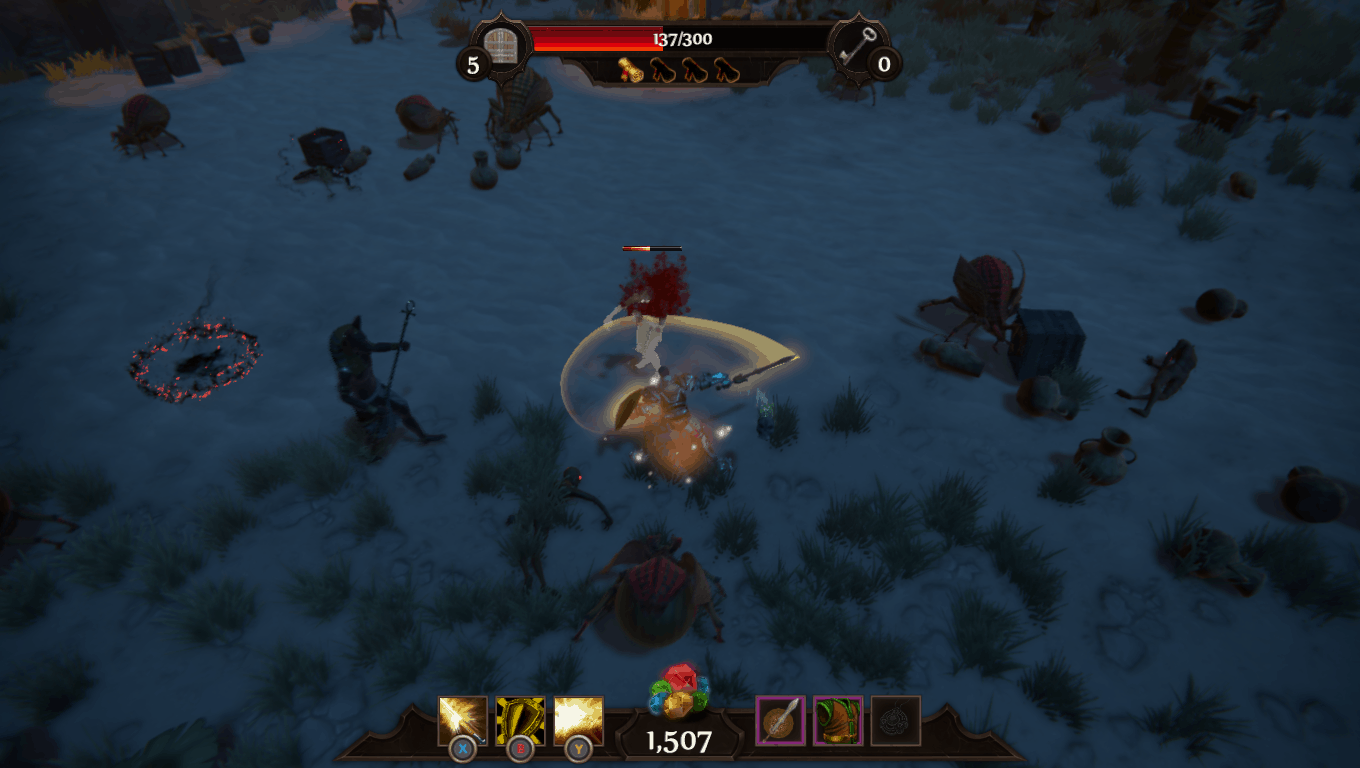
Tell Us About the Loot
The main structure of the game has you entering a new area sectioned off by small rooms, much like in The Binding of Isaac. Rooms have a set number of enemies doled out in a waves. Once you complete the waves within a room, you are rewarded with a chest of gems, health or a skill card. When you find the exit in a particular area, you can choose to leave or stay and complete each room in the area.
If you do, the game spawns a larger chest with even more gems or a skill card. The risk is usually worth it because of the substantial amount of gems and helpful skill cards that can potentially be gained. Gems can then be used at the overworld map’s shop to buy weapons, armor, health or more skill cards. I felt that gems do a good job of incentivizing you to pick up as many as you can to buy better skills and equipment while not making you feel like you’re entirely at the mercy of randomized drops.
Kill for Skills
Much like other Roguelites, there is a good amount of randomization when it comes to what you encounter. Passive skills come in the form of skill cards, whose appearances within play-throughs are random. I felt that there was a good range of different offensive and defensive skills; that being said, you’ll still encounter familiar skill cards in subsequent play-throughs. What’s nice about this is that you can familiarize yourself with the skill cards you like without being overwhelmed by such a huge amount that the chances of your favorites showing up are slim.
Also, all the skill cards I encountered were useful in their own way particular ways. One skill in particular can randomly spawn a skeleton to fight by your side. Others may increase your attack damage or your health points.
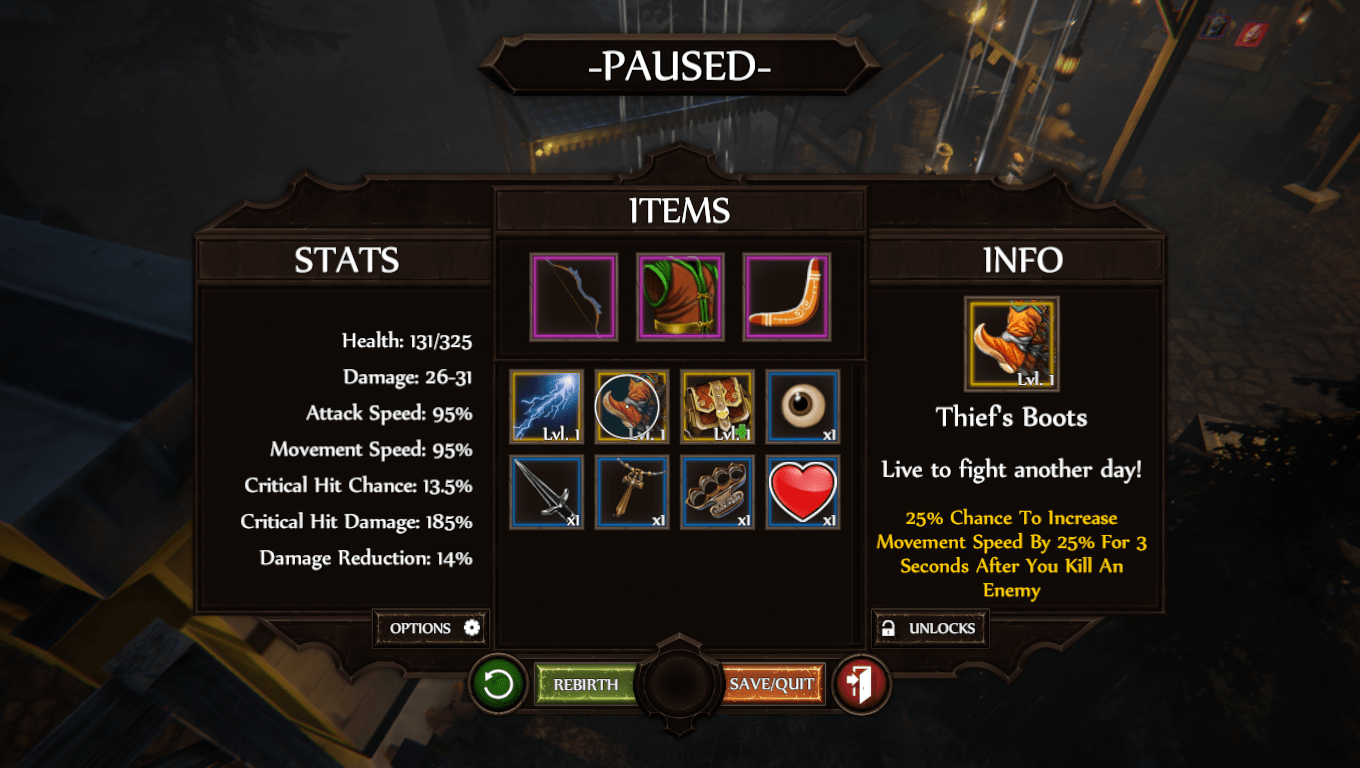
Pylon…and On
The game features standard areas to fight through like forests and desert plains, and, like other Roguelites, these areas are relatively sparse. With this genre the main focus is on combat, so rooms act as miniature arenas. Unfortunately, this means that the areas themselves aren’t particularly interesting. That said, the art design is solid, as colors pop and enemies stand out without blending into the background. I did, however, find things got repetitive and wished to see a greater variety of themes and settings.
One of the challenges when creating this type of game is having a fair balance between the randomized elements and the preset levels. Like many games in the genre, if you don’t randomly come across good drops, it’s going to make things more difficult. The game does require skill and mastery of the many offensive and defensive attacks at your disposal. Regardless, the passive skills can still make or break a playthrough. I found the balance was fair, but it’s still a difficult game. But that challenge can make it rewarding when you narrowly complete an area with a sliver of health left.
Overall, I think Pylon: Rogue succeeds in what it’s trying to accomplish. It’s a purposefully challenging Roguelite with just enough content to keep you coming back for more. It’s not the best that I’ve played, but it’s still a solid experience for those seeking a more Diablo-style Roguelite with really fun combat.
Pylon: Rogue is available via Steam.
Watch the official trailer for Pylon: Rogue below:

